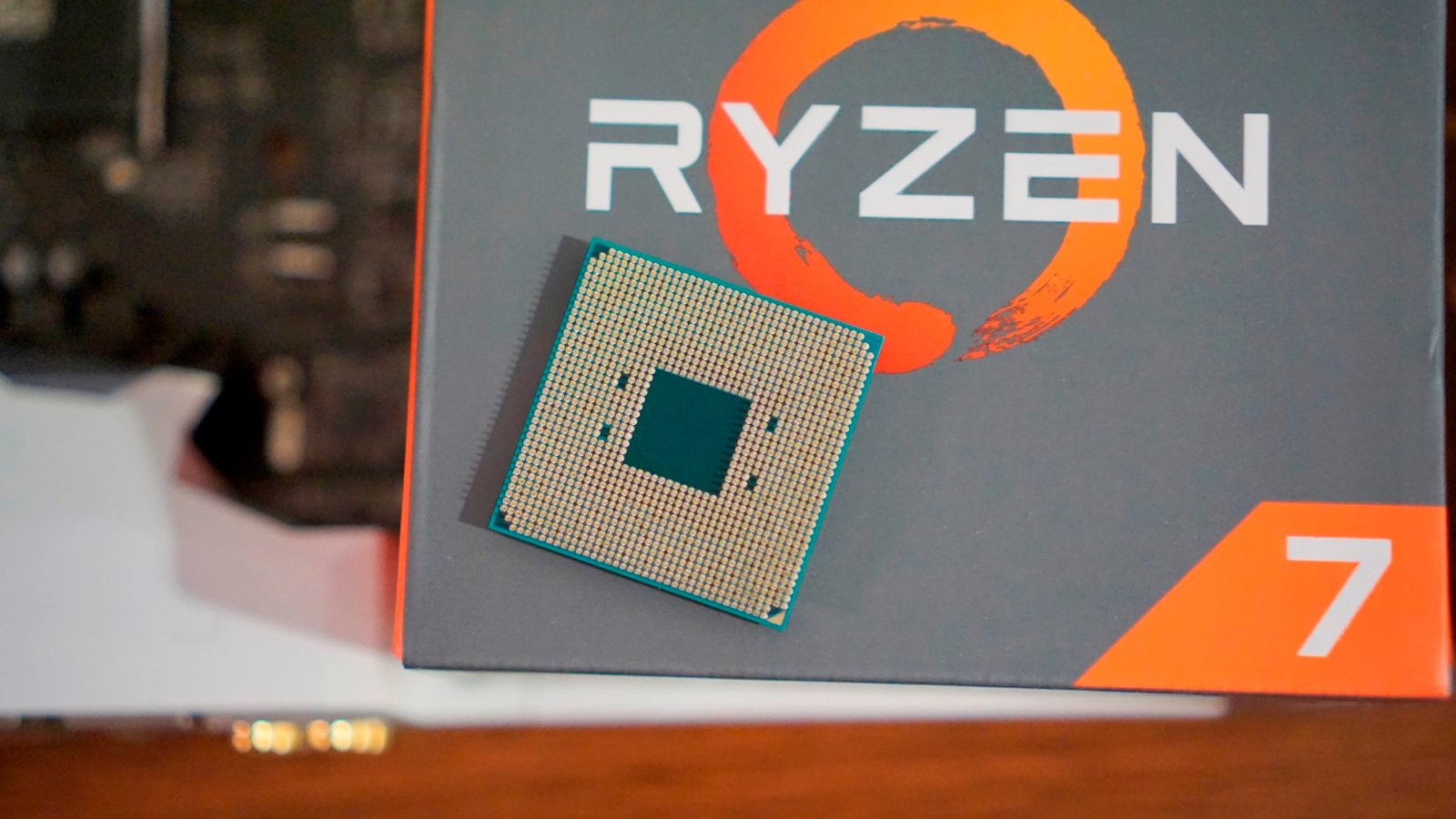AMD’s latest Summit Ridge Ryzen 7 1800X 8-core processor has certainly caught our attention for its stellar performance and a price point that may give Intel a run for their money. And then there is the AMD Ryzen 7 1700X processor that almost as fast as the R1800X processor for a lower price.
Everything about the R1700X is almost the same as the flagship 1800X. It’s based on the new ZEN architecture alright and it consist a total of eight main cores and 16 threads with Simultaneous Multi-Threading (SMT) technology that computes at 3.4 GHz at its base speed and 3.8 GHz for Precision Boost.
If I use a better processor cooling solution, the eXtended Frequency Range kicks in to extend the frequency to 3.9 GHz. In simple words, the R1700X is like an R1800X processor that’s underclocked by just 200 MHz.
The Ryzen 7 1700X processor comes packed with all of AMD’s innovative CPU features found on the R1800X. The “Pure Power” monitors the controls the speed and draws lesser power for low-priority processing tasks. The “Neural Net Prediction” and “Smart Prefetch” are assigned to analyze and anticipate preload instructions and data access for preloading the cache which results in faster executions.
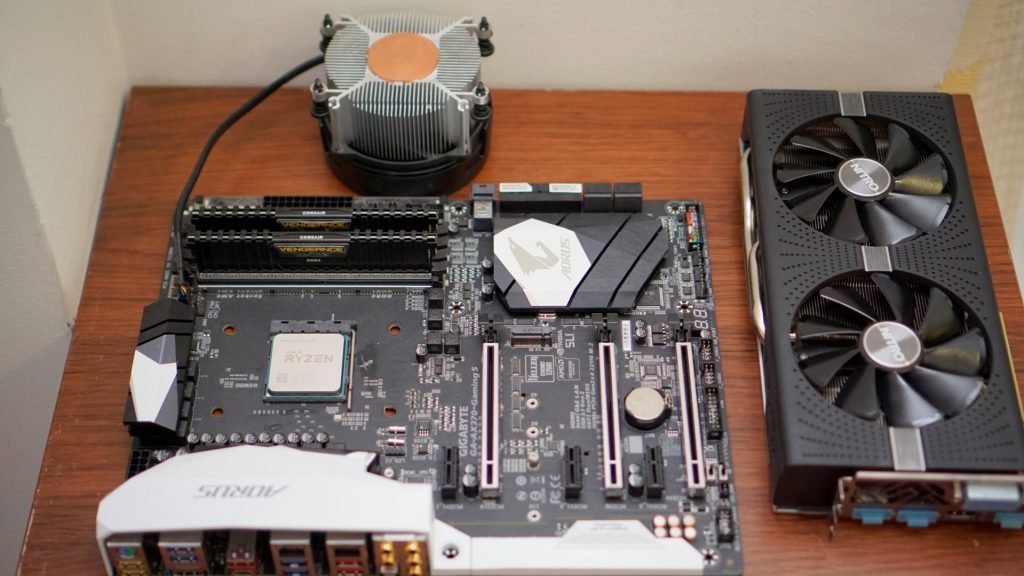
I will be once again using the same Gigabyte AX370-Gaming 5 AM4 motherboard from my recent review of the AMD R1800X, and the AMD Wraith Spire cooler for testing the AMD Ryzen 7 1700X processor. And of course, a SAPPHIRE Nitro Radeon RX 580 8GB card is added that matches the setup. The system consists of two 8GB Corsair Vengeance DDR4 RAM chips and a 2TB Crucial MX300 SSD with a fresh install of Windows 10 Pro operating system.
Starting off with synthetic benchmarks that I ran, CPU-Z tests results conclude that the performance AMD Ryzen 7 1700X falls slightly behind the R1800X by small margin only.
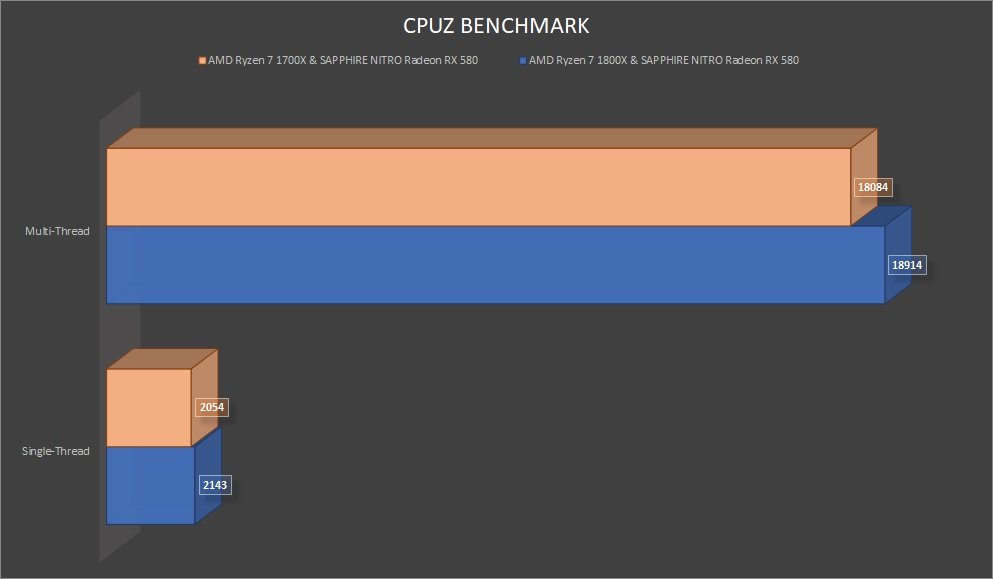
The same conclusion is for the CineBench R15 and GeekBench 4 synthetic benchmarks for single and multi-core performance figures and the AMD R1700X is almost as speedy as the R1800X.
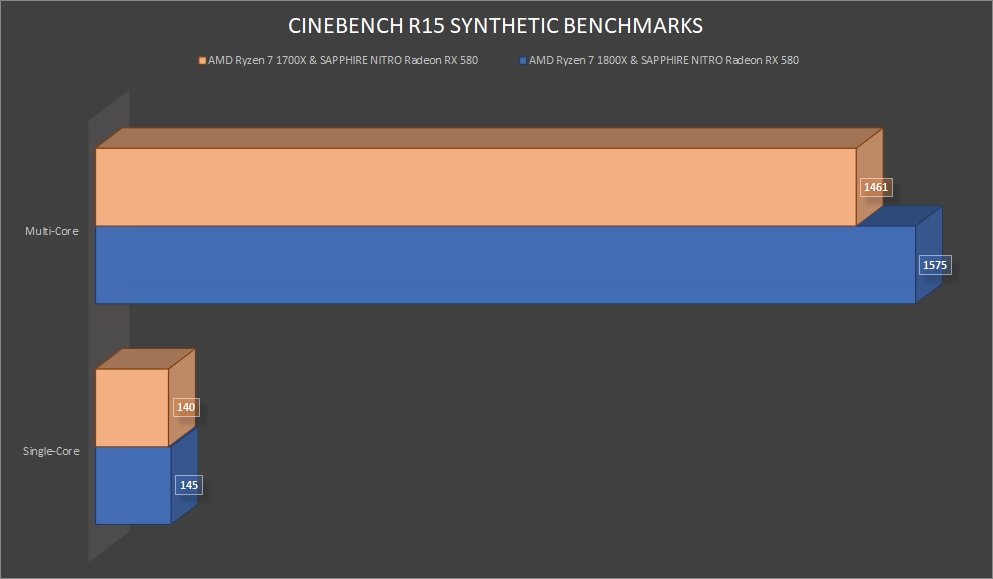
I went ahead to test the R1700X with more render based benchmarks. The Sony Vegas test of rendering a 1080p60 video file took almost a minute more on the R1700X than on the R1800X. However, rendering a 2160p 60p file on both the processors took almost the same time. Handbrake rendering with the R1700X also took slightly few seconds more than time taken with the R1800X.
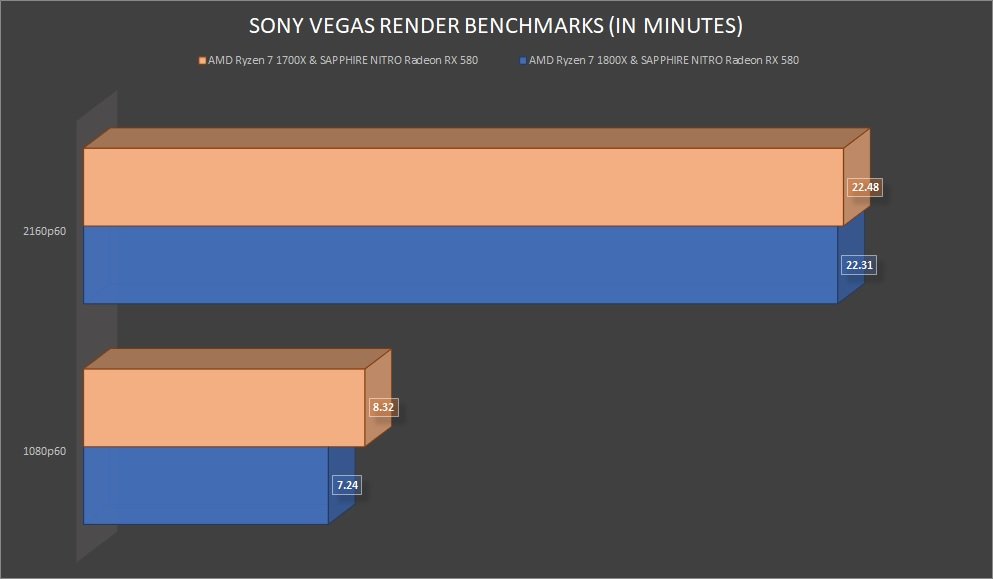
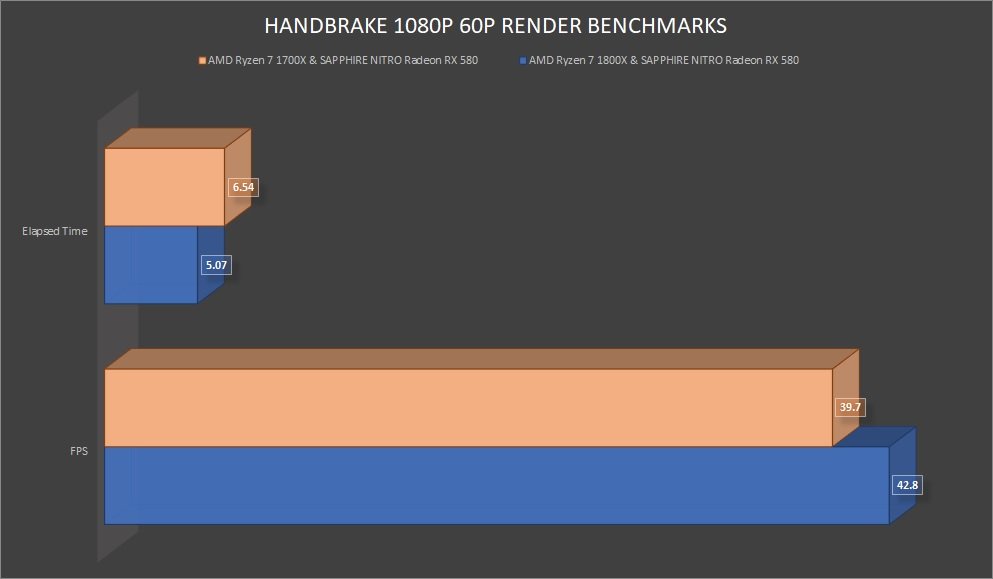
I was surprised to see that the R1700X took slightly lesser time to finish the Blender Blenchmark than the faster R1800X.
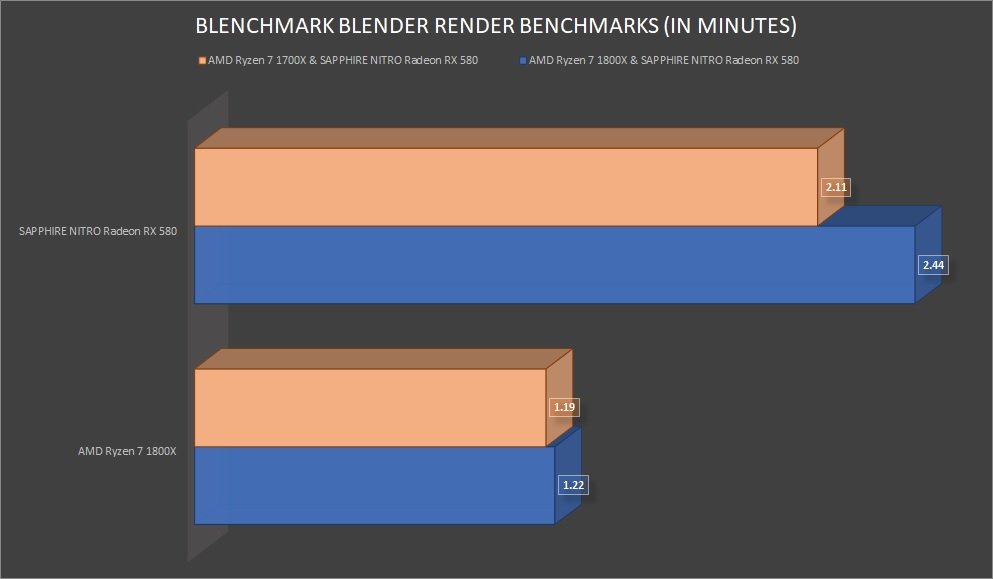
Next comes gaming with the R1700X. While the R1800X processor is theoretically the faster chip, my synthetic gaming benchmarks showed that the R1700X is better by just a thread. Regardless of the results, both the cards performed really well in the FutureMark and Superposition benchmarks.
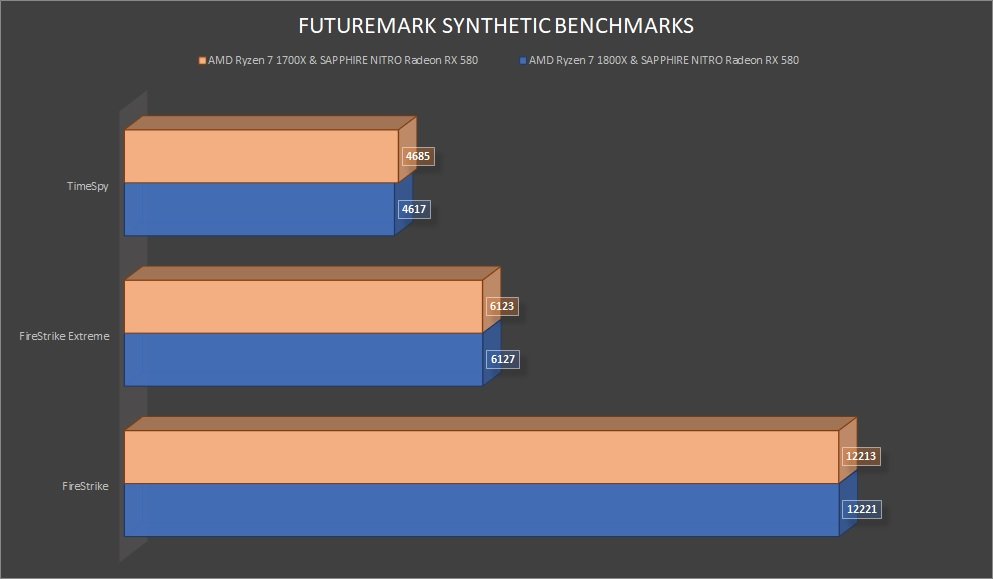
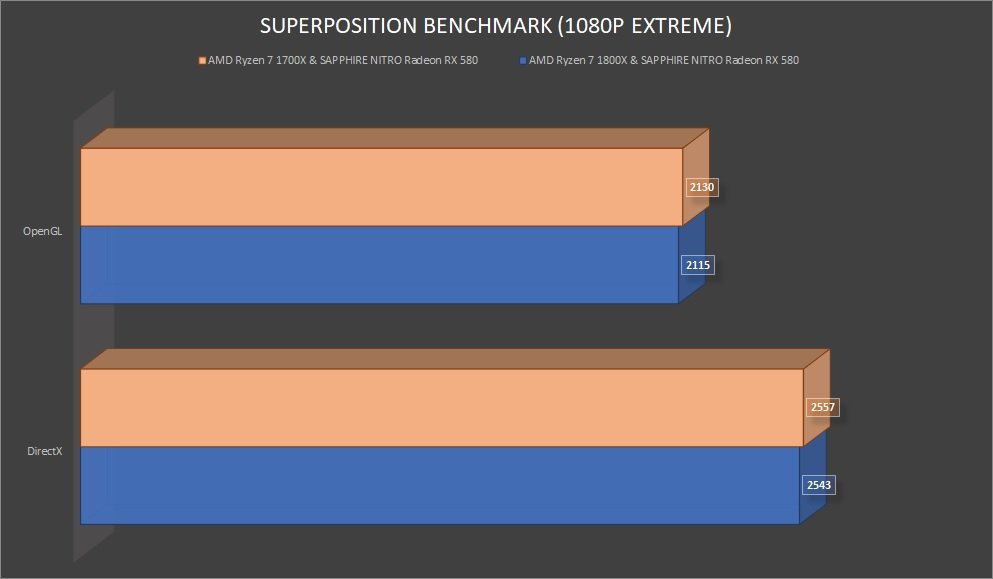
Here is where my gaming tests get interesting. Running DirectX 11 game title tests shows that 1700X gave a performance gain by 1 or 2fps. However, the table turns around for DirectX 12 tests with a 1-2fps frame-rate advantage for the R1800X. And I’m well aware that a 2fps gain is nothing great to brag about. Nevertheless, the SAPPHIRE Nitro Radeon RX 580 performed well with the Ryzen 7 1700X in 1080p gaming at maximum settings.
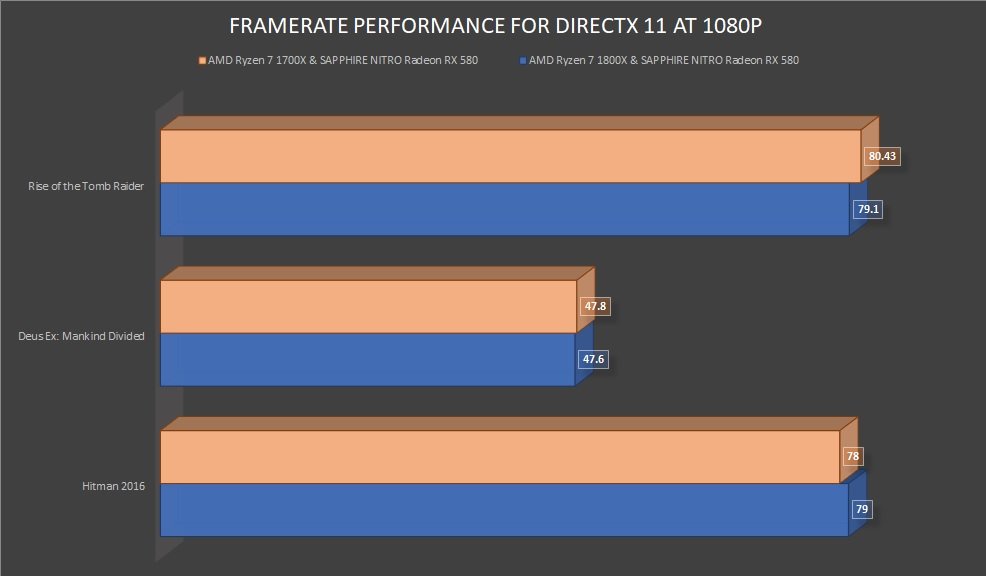

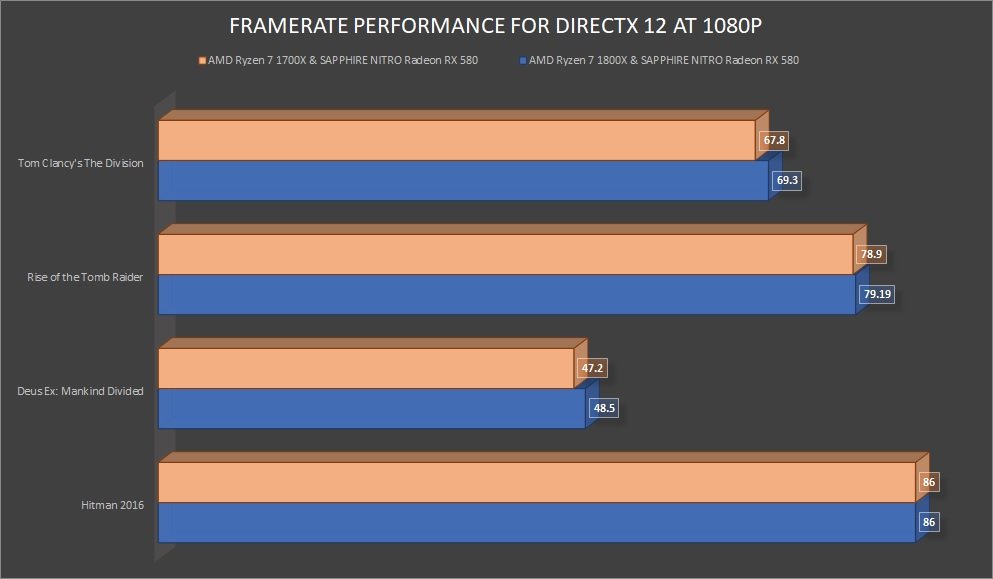
I’ve said it before and I’ll say it again. The AMD Ryzen 7 1700X processor performs almost as fast as the R1800X for CPU intensive tasks. I would say gaming with the 1700X is no different from the 1800X. Being an unlocked processor that allows to push the speed boundaries further will surely keep enthusiasts happy. Unless you want that slightly extra performance from the 1800X, the AMD Ryzen 7 1700X is a better choice for just 100 dollars less and a personal pick of mine.
Price: AED 1466











